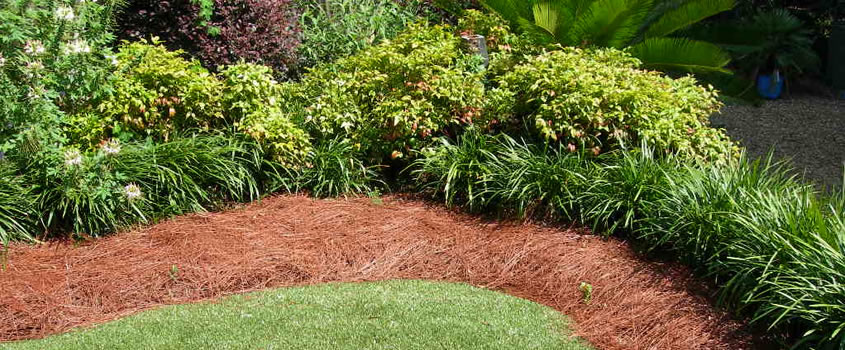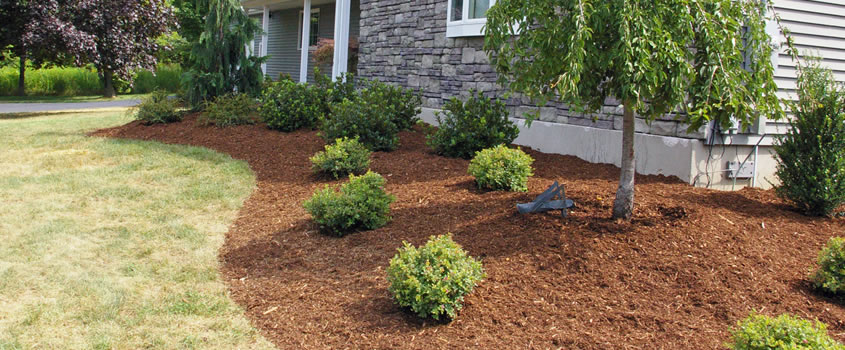Using Pine Needles
Mulch. Because of their shape and rigidity, pine needles naturally lock together, which allows air and water to circulate while preventing the needles from packing down and forming a dense mat. This means your plants are far less likely to experience the rot and oxygen deprivation that sometimes occurs under thick layers of bark or leaves. The shape and rigidity of the needles also helps the mulch stay put during high winds and steady rains. Pine mulch can be used around vegetables and perennials of all kinds including roses and raspberries.
Winter protection. Add 3 to 5 inches of pine needle mulch to your garden beds in the fall. This will provide protection against sudden and extreme dips in temperature and allow plant roots to remain active until the ground freezes.
Slug barrier. Create a ring of pine needles around the base of your hostas to help prevent slug damage. Pests like slugs and snails are known to avoid crawling over prickly objects that could injure or irritate their soft bodies.
Walking path. Use pine needles to create walking paths between the rows in your vegetable garden. After you walk them a few times the needles pack down nicely. Not only do pine needles make an attractive path, but it will also help to keep the weeds from growing in-between your rows.








